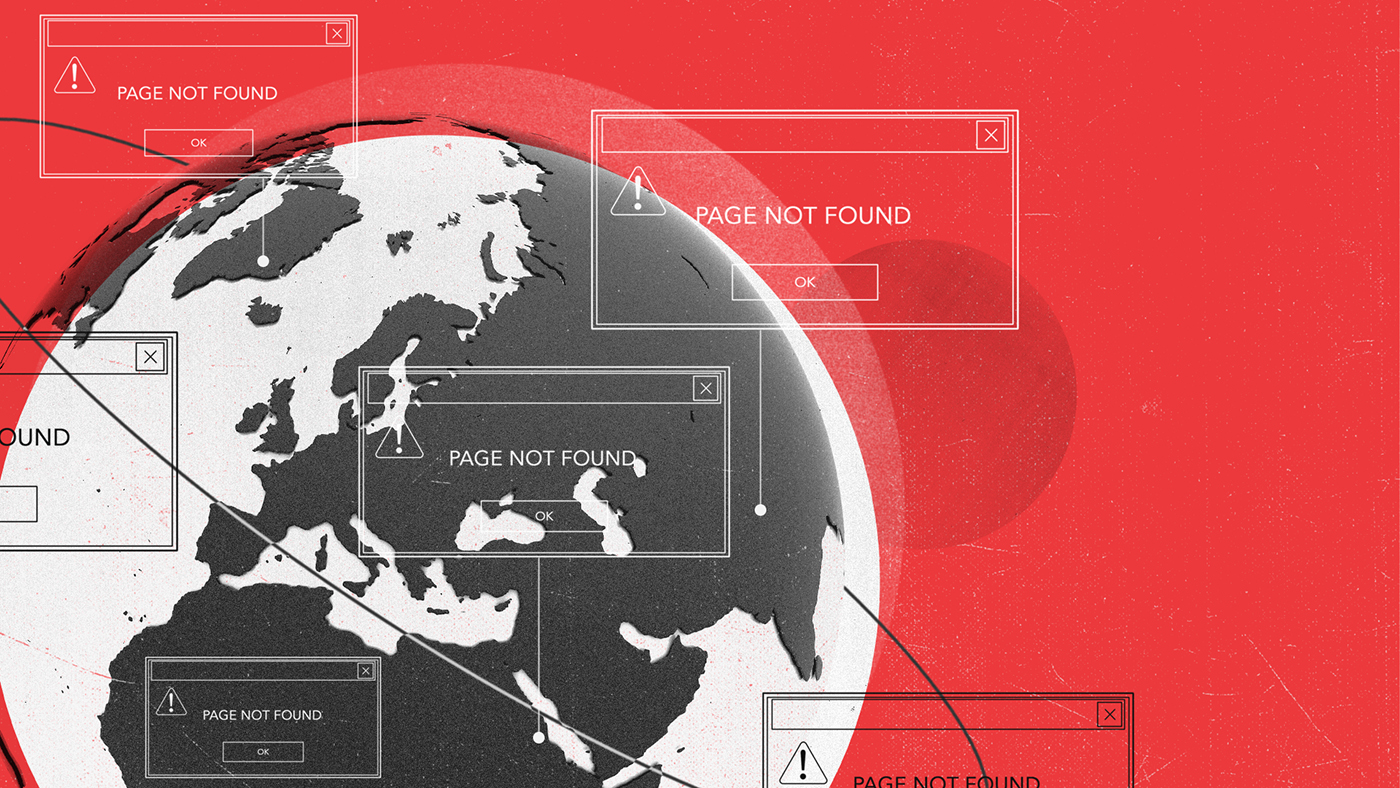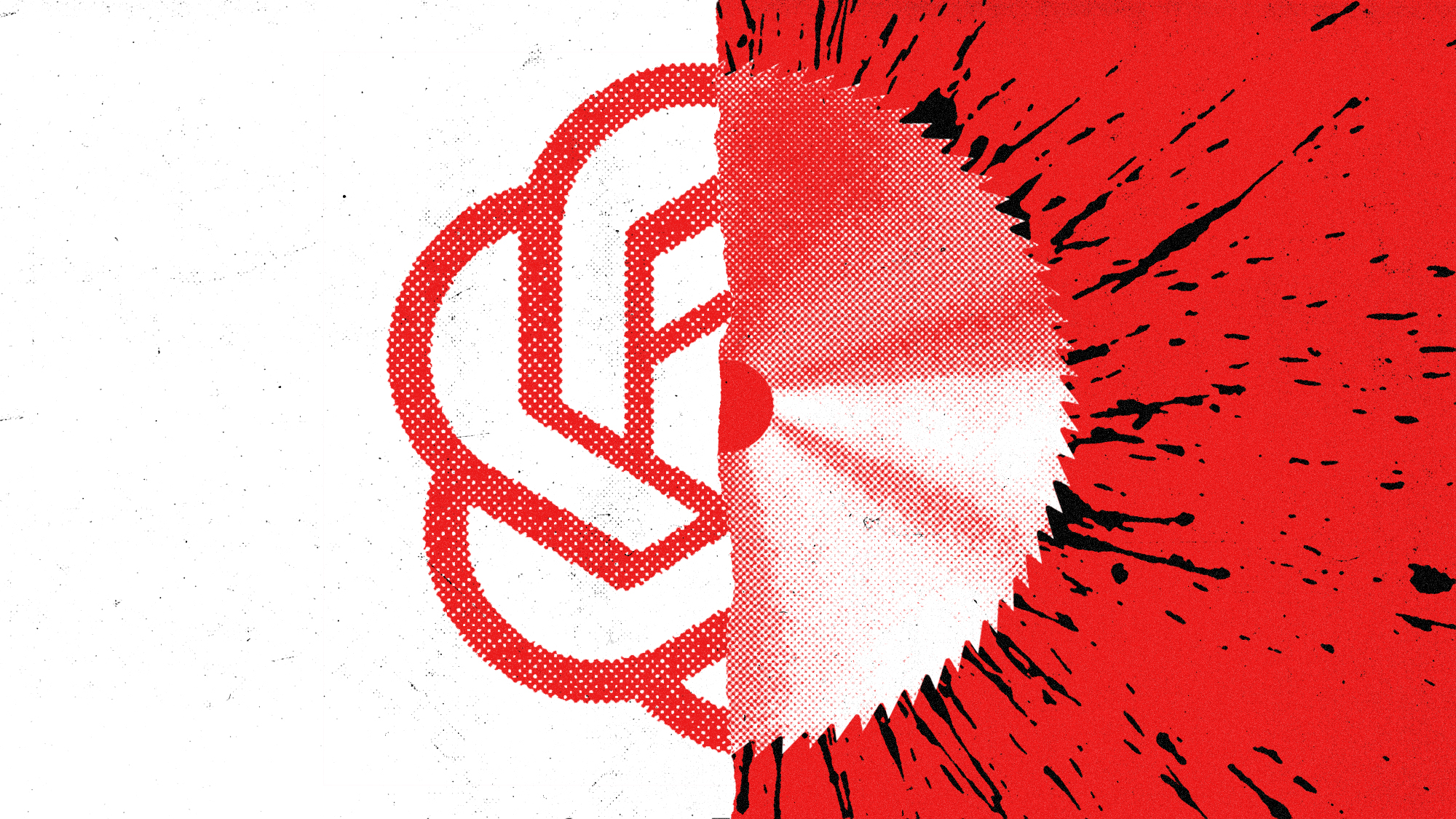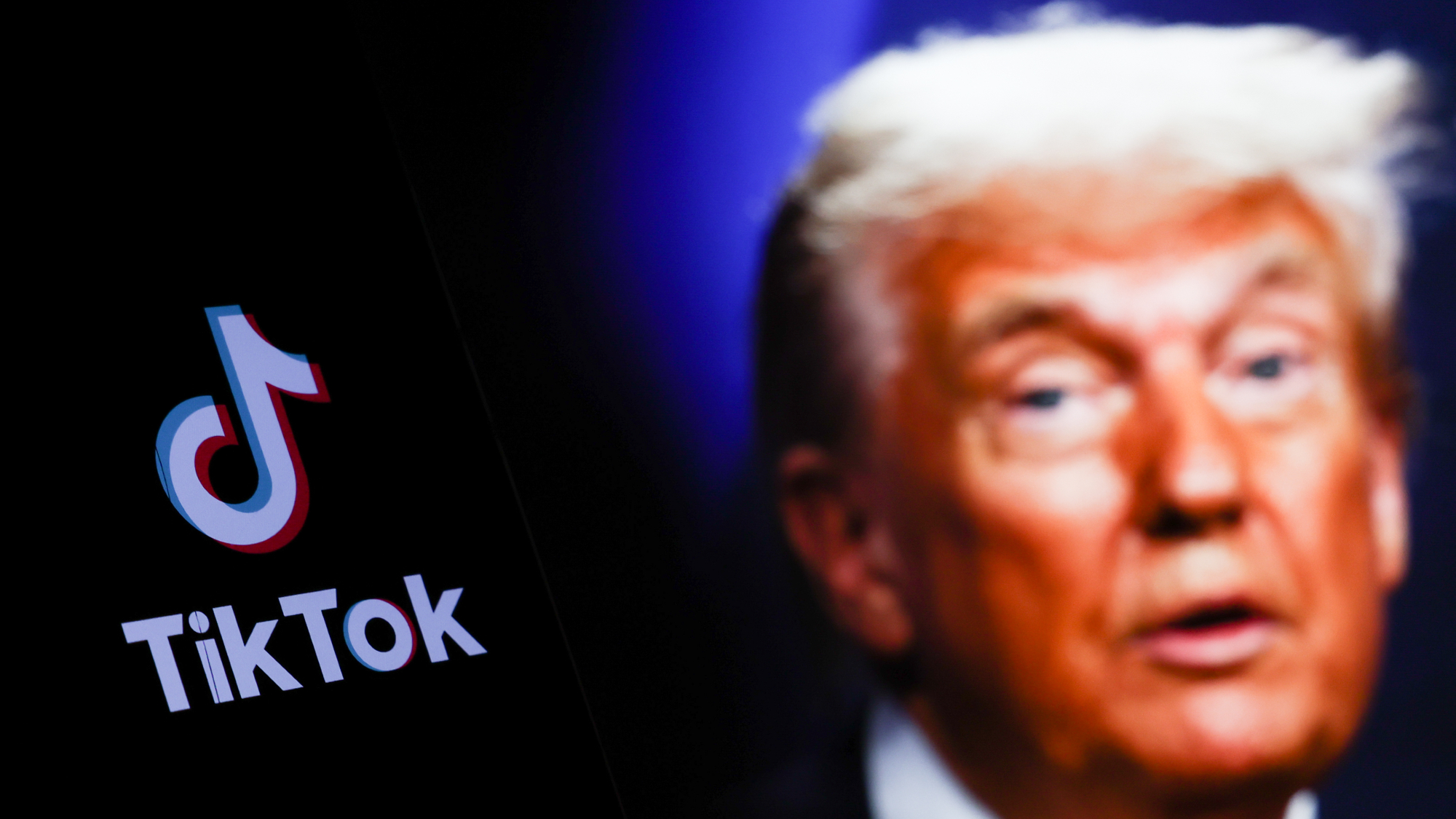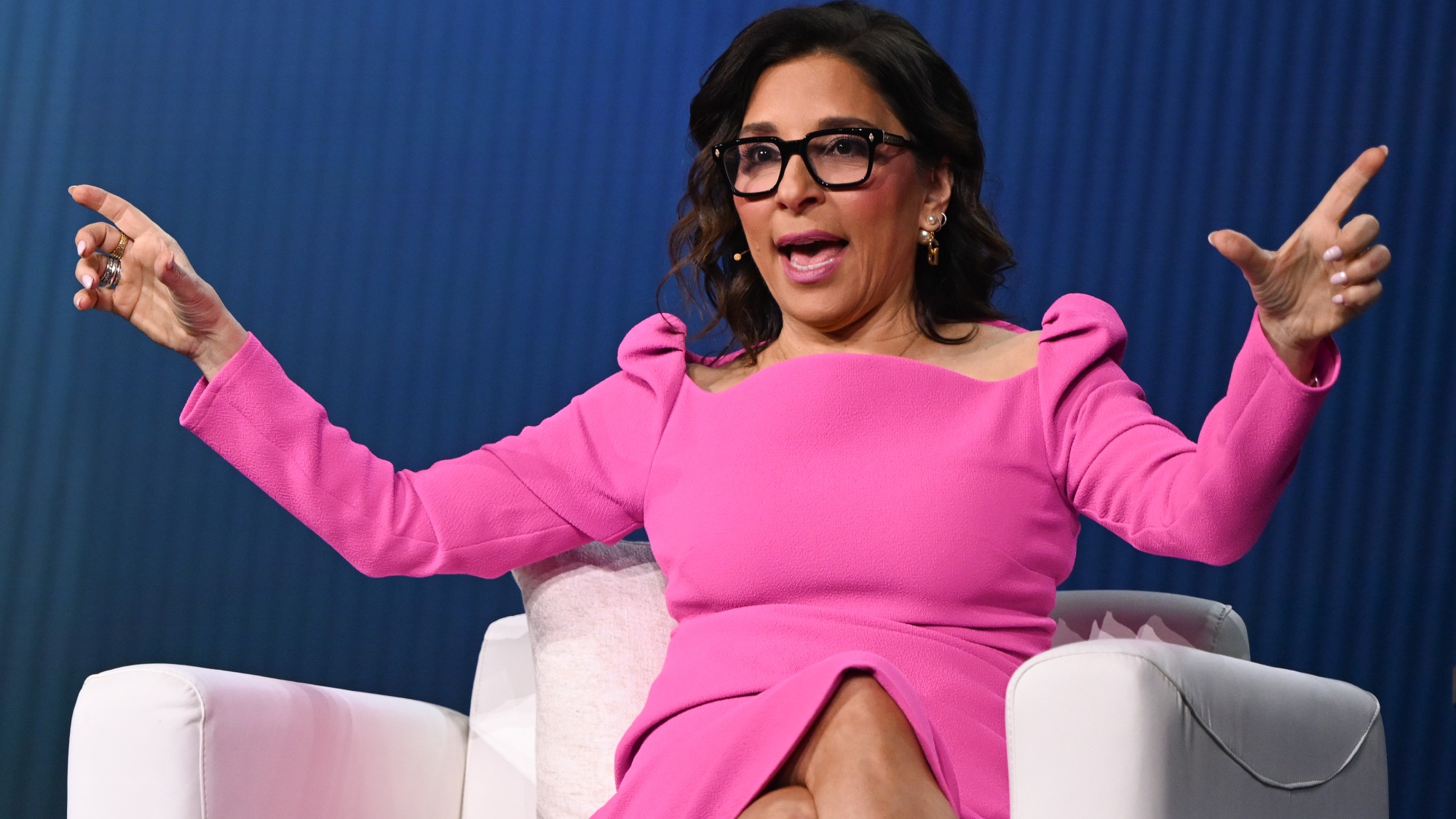How greater online regulation is prompting fears of a ‘splinternet’
Government pressure worldwide means the internet is not as open as it once was

A free daily email with the biggest news stories of the day – and the best features from TheWeek.com
You are now subscribed
Your newsletter sign-up was successful
The open, globally connected internet is facing increasing fragmentation, leading to concerns about the emergence of a “splinternet”.
This week, Meta, the parent company of Facebook, was handed a record €1.2bn (£1bn) fine for user-data transfers from the EU to the US. It was imposed by Ireland’s Data Protection Commission, which regulates Meta across the EU, for a breach of the bloc’s General Data Protection Regulation (GDPR).
However, asked The Guardian’s technology editor, Alex Hern, does the “growing online muscle” of the EU “mean the long-awaited arrival of real privacy online” or is it another step towards “the creation of a ‘splinternet’ as international borders begin to make their presence known online as well as off?”
The Week
Escape your echo chamber. Get the facts behind the news, plus analysis from multiple perspectives.

Sign up for The Week's Free Newsletters
From our morning news briefing to a weekly Good News Newsletter, get the best of The Week delivered directly to your inbox.
From our morning news briefing to a weekly Good News Newsletter, get the best of The Week delivered directly to your inbox.
What do we mean by the splinternet?
In 2000, US President Bill Clinton gave a speech which expressed optimism over the transformative effect the internet could have on authoritarian states such as China.
He told the audience in Washington that while there was “no question” that the Chinese government was already trying to crack down on the internet – invented under two decades earlier – attempts to do so were “sort of like trying to nail Jell-O to the wall”.
Just a year later, researcher Clayton Wayne Clews, then director of technology studies at the Cato Institute, a libertarian think-tank, coined the term “splinternet”. “Despite its Wild West reputation,” Clewes wrote in a 2001 editorial for Forbes, “the internet has no shortage of regulation.”
Foreseeing the effects that increasing government regulation could have on the internet, Clews called for the creation of “parallel internets” which would run as autonomous online worlds, asking: “How about more internets, not more regulations?”
A free daily email with the biggest news stories of the day – and the best features from TheWeek.com
The term as it’s used today has “come to denote all the ways the internet is fragmenting” said the Sydney Morning Herald, “but the primary danger Clews foresaw – regulation by governments – is still the one most closely associated with the idea of a splinternet”.
Is the internet fragmenting?
The internet has been “long imagined as a “global online commons” said The Economist in a 2016 article, but it is “becoming a maze of national or regional and often conflicting rules”.
Early digital rights activists and thinkers, such as John Perry Barlow, hoped the internet would remain a place of freedom from the confines of nation-states, but as the internet has become “increasingly important to the running of the modern world”, governments have tried to “regain lost territory online”, said The Economist.
The physical infrastructure supporting “cloud computing”, required to support many internet services, is rooted in specific sovereign territories, enabling governments to enforce national laws and regulations.
This has sparked what the think-tank Internet & Jurisdiction Policy Network has called a “legal arms race”, and since 2012 it has documented thousands of cases of jurisdictional problems online created by governments and courts.
Does the splinternet already exist?
China is often held up as a prominent example of an early type of “splinternet”. In an approach known as The Great Firewall, the Chinese government “keeps every major Western website banned or censored”, said culture magazine The Swaddle, and is known to have “a local alternative for every major app and website”.
Russia has been “attempting to mimic China’s approach for over a decade”, said Fortune, through the creation of what is known as the “RuNet”. Russia’s invasion of Ukraine brought “greater attention to RuNet“ after the rerouting of existing Ukrainian network connections through Russia in occupied areas.
But “splinternets” exist beyond China and Russia’s borders. In a 2015 article for The Atlantic, writer Jillian C. York noted how location can determine what people can see on the internet.
In 2014, Twitter agreed to block porn actor Belle Knox’s photos in Pakistan due to a legal request from the country’s telecommunications authority. Twitter’s policy, introduced in 2012, allowed content to be withheld, instead of removed entirely, to comply with government regulations.
The policy meant that “one ‘view’ of the platform from a given country is different from the view from another”, wrote York. “In other words, a Pakistani Twitter user is provided a sanitised version of Twitter, while an American one has access to – as far as we know – whatever content they desire.”
She added: “Corporate decisions around controversial speech, such as this one, all too often result in the creation of an ‘iron curtain’ of sorts, dividing the seemingly borderless Internet.”
Is the splinternet a threat to civil liberties?
These problems aren’t just confined to authoritarian states, some writers have suggested.
Indeed, the social media app TikTok is facing being banned from government devices by several governments across the world, including the United States and the UK, with discussions of a complete ban gaining momentum in many countries.
By “normalising the idea that certain bits of tech that for years have been seen as acceptable are now simply not allowed to be used by politicians, even without evidence, the US, UK and European Union have set off the first skirmishes of a serious conflict”, wrote Chris Stokel-Walker for The New Statesman, adding that “it can’t be a coincidence that weeks after Western democracies banned TikTok from official devices, Russia said its presidential administrative staff must stop using iPhones by 1 April.”
“The splinternet is happening”, wrote Stokel-Walker, “but on devices and through apps, rather than big infrastructure.”
It might be wise for those in the West to “let go of the one-global-internet pipe dream”, wrote Mike Elgan for Computer World, not least because there are “a couple [of] billion people – at least – who do not have access to anything resembling the global internet” today.
“Instead, embrace the hard reality” that there are already “many internets”, wrote Elgan, “and accessing those minds and markets is going to take a lot of work”.
Sorcha Bradley is a writer at The Week and a regular on “The Week Unwrapped” podcast. She worked at The Week magazine for a year and a half before taking up her current role with the digital team, where she mostly covers UK current affairs and politics. Before joining The Week, Sorcha worked at slow-news start-up Tortoise Media. She has also written for Sky News, The Sunday Times, the London Evening Standard and Grazia magazine, among other publications. She has a master’s in newspaper journalism from City, University of London, where she specialised in political journalism.
-
 What to know before filing your own taxes for the first time
What to know before filing your own taxes for the first timethe explainer Tackle this financial milestone with confidence
-
 The biggest box office flops of the 21st century
The biggest box office flops of the 21st centuryin depth Unnecessary remakes and turgid, expensive CGI-fests highlight this list of these most notorious box-office losers
-
 What are the best investments for beginners?
What are the best investments for beginners?The Explainer Stocks and ETFs and bonds, oh my
-
 TikTok finalizes deal creating US version
TikTok finalizes deal creating US versionSpeed Read The deal comes after tense back-and-forth negotiations
-
 Is social media over?
Is social media over?Today’s Big Question We may look back on 2025 as the moment social media jumped the shark
-
 X update unveils foreign MAGA boosters
X update unveils foreign MAGA boostersSpeed Read The accounts were located in Russia and Nigeria, among other countries
-
 Sora 2 and the fear of an AI video future
Sora 2 and the fear of an AI video futureIn the Spotlight Cutting-edge video-creation app shares ‘hyperrealistic’ AI content for free
-
 Trump allies reportedly poised to buy TikTok
Trump allies reportedly poised to buy TikTokSpeed Read Under the deal, U.S. companies would own about 80% of the company
-
 What's Linda Yaccarino's legacy? And what's next for X?
What's Linda Yaccarino's legacy? And what's next for X?Today's Big Question An 'uncertain future' in the age of TikTok
-
 X CEO Yaccarino quits after two years
X CEO Yaccarino quits after two yearsSpeed Read Elon Musk hired Linda Yaccarino to run X in 2023
-
 Musk chatbot Grok praises Hitler on X
Musk chatbot Grok praises Hitler on XSpeed Read Grok made antisemitic comments and referred to itself as 'MechaHitler'